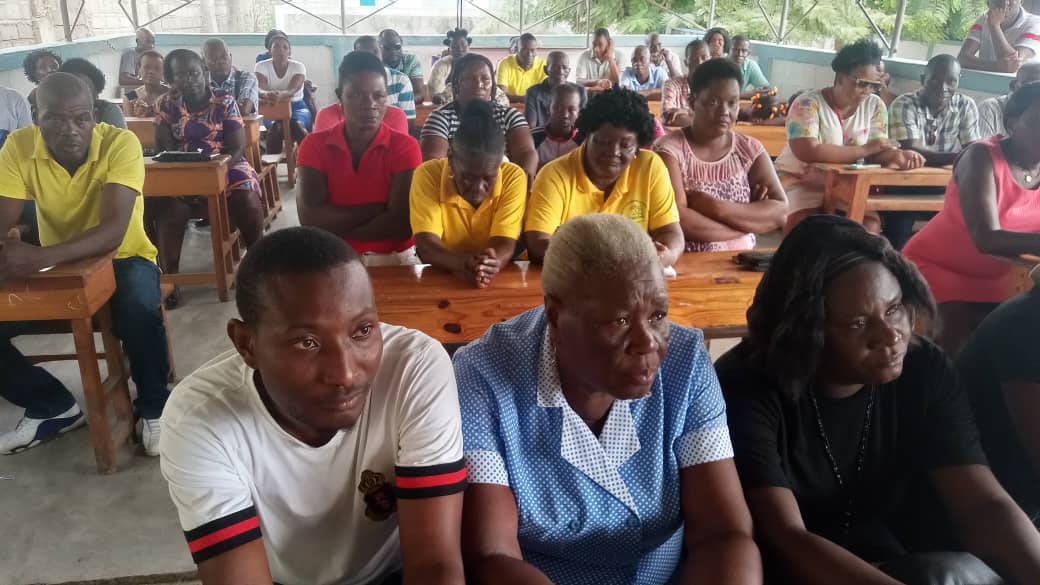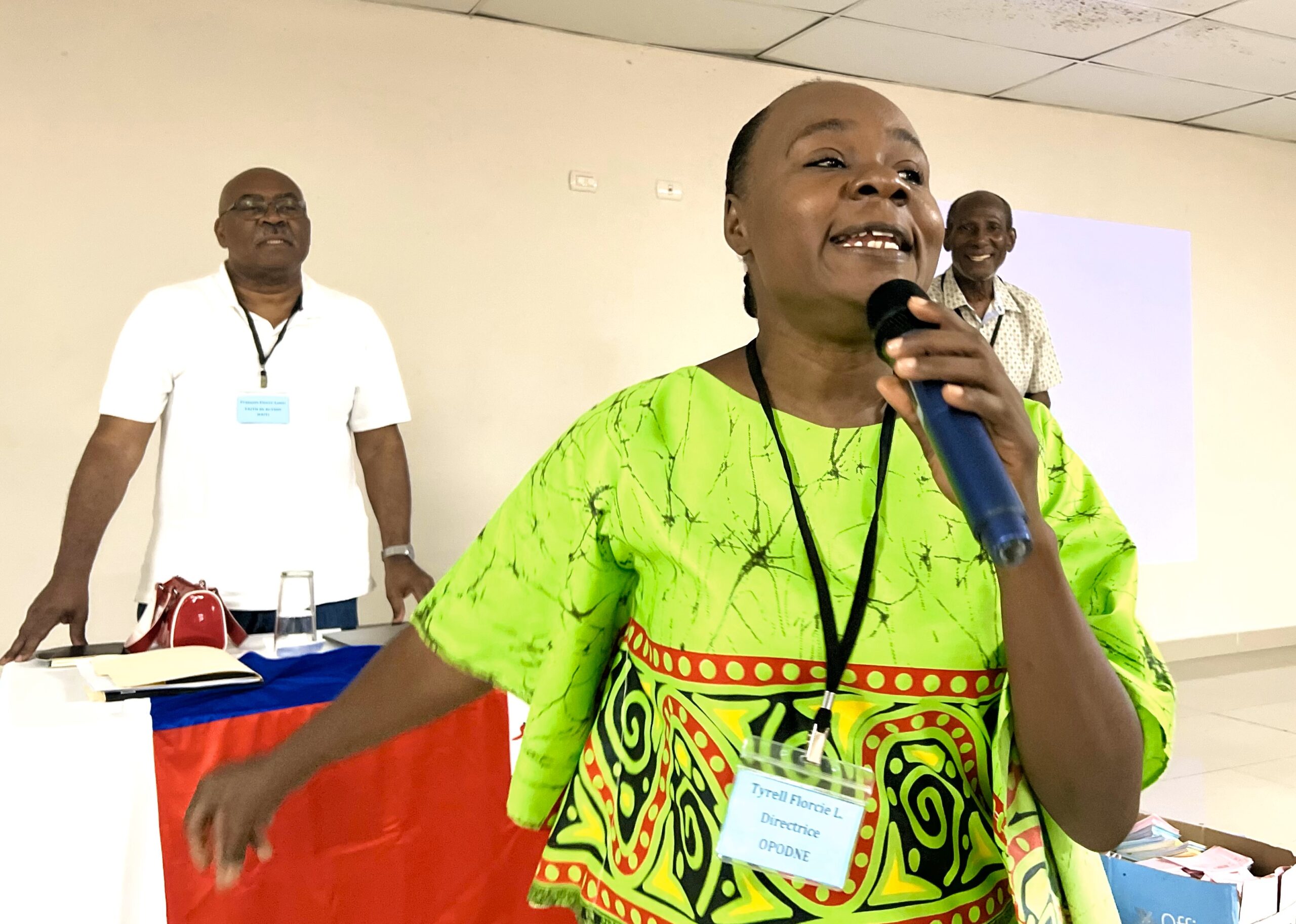“We have not been deterred by the loss of Inter-American Foundation funding for our agricultural campaign.” – Florcie Tyrell, OPODHA Executive Director In North and Northeast Haiti, Florcie Lareche…
Modeling democracy in preparation for elections in Haiti
Fifteen officials and contractors with USAID travelled to the OPODNE offices to meet with leaders to dialogue about the needs of small-scale farmers. While the outcome is still not clear, this meeting represents the growing power of OPODNE organizing with the support and solidarity of United States diaspora and faith allies to change the way USAID operates in Haiti.
Haiti has not had an election since 2016. There are no elected officials at any level who are serving its people. The people of Haiti are praying, hoping and working for the security and interim leadership that might conduct fair elections this year. The leaders in OPODNE are not just waiting, they are building the practice of democracy from the ground up.
OPODNE is modeling how democracy might work at the local level where 62 local communities are employing the organizing process to elect their own leadership, set an agenda for needed investment, operating modest development programs, and holding themselves accountable to the local community through transparency and inclusion.
Through A Way Forward in Haiti, Faith in Action International is organizing Haitian diaspora communities, National Haitian Elected Officials Network, faith leaders and other allies to pressure the United States Administration and Members of Congress to shift policy to withdraw support from the present corrupt, illegitimate Haitian government to support security, democracy and development through direct partnership with Haitian people.
The People’s Ecumenical Organization for the Development of Northeast and North Haiti (OPODNE), founded in 2014, is an umbrella for 62 grassroots community organizations. With a staff of ten, OPODNE provides training and coaching to 5,000 grassroots leaders who meet every other week in their communities. Elected presidents of each local organization meet quarterly. With little functioning government and a collapsed economy, OPODNE is helping people survive and stabilizing conditions in North Haiti. OPODNE teams run a dozen agricultural and commercial cooperatives, operate 22 mutual solidarity funds, and launched the Northeast Haiti Community Seed Bank in 2023, in partnership with the St. Barnabas Agricultural Center.
OPODNE is campaigning to change how USAID, other aid agencies, and NGOs approach food systems in Haiti. USAID’s food policy in Haiti has focused on large-scale, water-intensive production for export. For-profit international contractors have managed all of its agricultural development projects. In contrast, farmers in Northeast and North Haiti say they need help with high-quality seeds, irrigation, tools, credit, and guidance from agronomists. To adapt to a decade of drought, OPODNE is pushing USAID to support a regional water management plan for the Plaine du Nord-Massacre aquifer. While OPODNE continues to meet with USAID, the organization is seeing first-hand the gap between the commitment to localization and the reality of aid agencies seeing community-based organizations as implementers.



